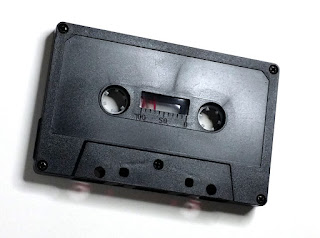The Tragic and Fatal Art of Making a Mixtape
There is an age-old mixtape code
that does not allow for much recopying. The tape you make for one person should
not be given to another. This does not stop these tapes from being recopied if
they are good, usually by the receiver of said tape without the knowledge of
the author, carrying on the tradition of musical choices and adding more
variety to one's musical taste. Tapes can throw a monkey wrench into the works and
introduce an interesting theme that needs to be carried on, or a genre that
has not been explored. One of these types of thematic tapes turned me on to power pop,
and more recently music blogs have taken over some of the work of mixtapes,
introducing me to older rock and country stuff that I would have missed.
Mixtape etiquette also assumes that the tape will be a labor of love. Now mixed
CDs or playlists do not have to be listened to as they are made. Those old
mixtapes required that the creator would have to listen to each song as they
recorded it, in effect being the first person who listens to it, yet not
knowing how it would sound on tape unless they listened to the recorded copy
again. It was so fun to pick the songs if you were giving the tape away or
listen to them years later, marveling at what you had decided to include. Or,
for that matter, thinking about what other choices you could have made. Why
include one song instead of another? Does the tape have more than one song by
an artist? Is there a scheme for how the songs are ordered, or is it just
tangential? These were all important questions to work out while crafting the
mix.
Tapes
were often very autobiographical, considering the mood of the creator, what
they were listening to at the time, who they were making the tape for, and if they
had gone through any serious life shit while making the tape. Much like a
record collection, mixtapes can include a surprising variety of last-minute
choices, whims, and obsessive considerations. They can include songs covering
an obsessive theme, but also can include favorite songs, those that make the
creator think of others. The possibilities are endless. Just like when
analyzing a record collection, a musicologist could plow through a mixtape and
figure out the favorite genres and themes of the creator. If the creator is a
music junkie, those genres and themes can be all over the map, sometimes
mannered, sometimes schizophrenic, and sometimes problematic.





Comments
Post a Comment